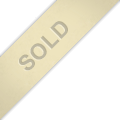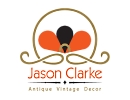Contact Seller
Jason Clarke Antiques
Tel07815 046645Please quote Antiques Atlas.


 Rare Antique Elliott Brothers Brass Thermopile
Rare Antique Elliott Brothers Brass Thermopile
 Vintage Fuller's Calculator, English, Bakelite
Vintage Fuller's Calculator, English, Bakelite
 Victorian Recording Rain Gauge by Callaghan & Co
Victorian Recording Rain Gauge by Callaghan & Co
 Steam Engine Demonstration Model by Max Kohl
Steam Engine Demonstration Model by Max Kohl
 Baird & Tatlock brass sieve set, Endacotts
Baird & Tatlock brass sieve set, Endacotts
 Antique Expedition Equipment
Antique Expedition Equipment
 Large Vintage Pantagraph, English, Brass, C.1950
Large Vintage Pantagraph, English, Brass, C.1950
 Salesman's Sample of a Pearsons B1 Fire Detector
Salesman's Sample of a Pearsons B1 Fire Detector
 Plaster Botanical Model of a Sunflower
Plaster Botanical Model of a Sunflower
 Antiique cased brass theodolite, English
Antiique cased brass theodolite, English
 Original Cole Fleet St. Waywiser/ Surveyor’s wheel
Original Cole Fleet St. Waywiser/ Surveyor’s wheel
 Victorian Martinet Rosewood Card Viewer
Victorian Martinet Rosewood Card Viewer
Non UK callers :
+44 7815 046645
George IV Cased Pantograph by Richard Ebsworth


For sale, a George IV mahogany cased pantograph by Richard Ebsworth of 68 Fleet Street, London.
Comprised of four brass bars connected together to form a central parallelogram. The extended limbs either end have a fixed lead weight at one end to create a fixed point for the instrument with the other containing a pencil holder. The central axis between has a secondary pen holder from which an original drawing can be traced. The movement of the central pen on the mechanism causes the pencil at the far end to trace an exact image but in enlarged form.
Both the lead weighted fixed point and the central pencil hold can be side adjusted along the bar length in order to inform the scale of the enlarged copy being produced.
This example is in good original condition and comes complete with its original bone castor feet and lead weight. It is engraved along one limb simply to, “Ebsworth 68 Fleet Street, London” and has further scale measurements for accurate setting and adjustment of the instrument.
The mahogany hinged and fitted case also remains in good solid condition. A great example from a Fleet Street maker.
Richard Ebsworth’s history remains somewhat undocumented in the records, he traded initially at 41 Fleet Street from around 1820 although it is not known with whom he was apprenticed expect that he seems to have been affiliated with the Barber’s Guild. He moved to the 68 Fleet Street address in 1824 and took his sons George and Thomas as apprentices. Three years later his final address is documented as 54 Fleet Street in 1827 where after the records cease.
The National archives retain Richard Ebsworth’s will of 1828 suggesting that he died rather early and according to the will, prior to his sons being capable of taking over the business. This is the likely reason his career is less well documented, however, during his short period of trading, the quality of his output was very good as is represented by this example and other extant instruments which have passed through British salerooms in the past.
Circa 1825
SellerJason Clarke Antiques
View all stock from
Jason Clarke Antiques

 Private dealer
Private dealer
By appointment only
Newbury
Berkshire
Tel : 07815 046645
Non UK callers : +44 7815 046645
Comprised of four brass bars connected together to form a central parallelogram. The extended limbs either end have a fixed lead weight at one end to create a fixed point for the instrument with the other containing a pencil holder. The central axis between has a secondary pen holder from which an original drawing can be traced. The movement of the central pen on the mechanism causes the pencil at the far end to trace an exact image but in enlarged form.
Both the lead weighted fixed point and the central pencil hold can be side adjusted along the bar length in order to inform the scale of the enlarged copy being produced.
This example is in good original condition and comes complete with its original bone castor feet and lead weight. It is engraved along one limb simply to, “Ebsworth 68 Fleet Street, London” and has further scale measurements for accurate setting and adjustment of the instrument.
The mahogany hinged and fitted case also remains in good solid condition. A great example from a Fleet Street maker.
Richard Ebsworth’s history remains somewhat undocumented in the records, he traded initially at 41 Fleet Street from around 1820 although it is not known with whom he was apprenticed expect that he seems to have been affiliated with the Barber’s Guild. He moved to the 68 Fleet Street address in 1824 and took his sons George and Thomas as apprentices. Three years later his final address is documented as 54 Fleet Street in 1827 where after the records cease.
The National archives retain Richard Ebsworth’s will of 1828 suggesting that he died rather early and according to the will, prior to his sons being capable of taking over the business. This is the likely reason his career is less well documented, however, during his short period of trading, the quality of his output was very good as is represented by this example and other extant instruments which have passed through British salerooms in the past.
Circa 1825
Price The price has been listed in British Pounds.
Conversion rates as of 21/MAY/2025. Euro & Dollar prices will vary and should only be used as a guide.
Always confirm final price with dealer. Sold
Category Scientific Antiques
Period Regency Antiques
Material Brass
Origin English
Item code as542a741
Status Sold
£0 
$0.00 
€0.00 

$

€

Conversion rates as of 21/MAY/2025. Euro & Dollar prices will vary and should only be used as a guide.
Always confirm final price with dealer. Sold
View all stock from
Jason Clarke Antiques

 Private dealer
Private dealerBy appointment only
Newbury
Berkshire
Tel : 07815 046645
Non UK callers : +44 7815 046645
You may also be interested in
 Rare Antique Elliott Brothers Brass Thermopile
Rare Antique Elliott Brothers Brass Thermopile
 Vintage Fuller's Calculator, English, Bakelite
Vintage Fuller's Calculator, English, Bakelite
 Victorian Recording Rain Gauge by Callaghan & Co
Victorian Recording Rain Gauge by Callaghan & Co
 Steam Engine Demonstration Model by Max Kohl
Steam Engine Demonstration Model by Max Kohl
 Baird & Tatlock brass sieve set, Endacotts
Baird & Tatlock brass sieve set, Endacotts
 Antique Expedition Equipment
Antique Expedition Equipment
 Large Vintage Pantagraph, English, Brass, C.1950
Large Vintage Pantagraph, English, Brass, C.1950
 Salesman's Sample of a Pearsons B1 Fire Detector
Salesman's Sample of a Pearsons B1 Fire Detector
 Plaster Botanical Model of a Sunflower
Plaster Botanical Model of a Sunflower
 Antiique cased brass theodolite, English
Antiique cased brass theodolite, English
 Original Cole Fleet St. Waywiser/ Surveyor’s wheel
Original Cole Fleet St. Waywiser/ Surveyor’s wheel
 Victorian Martinet Rosewood Card Viewer
Victorian Martinet Rosewood Card Viewer







